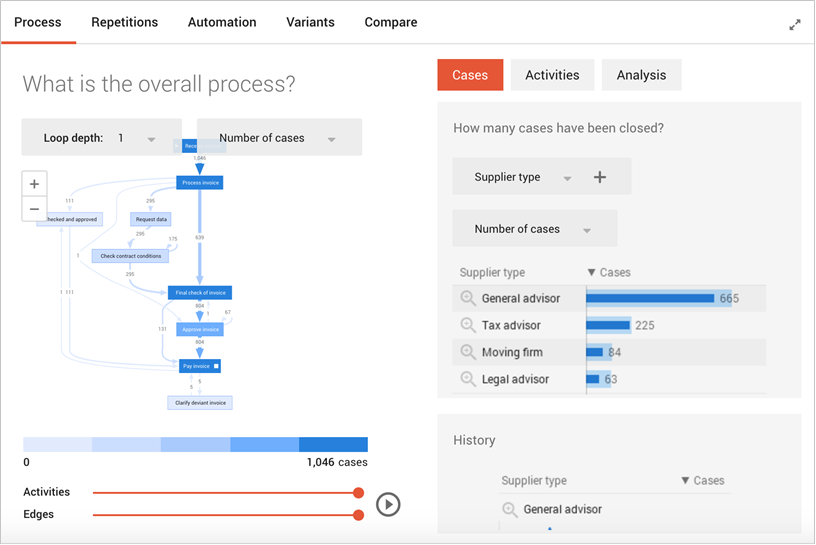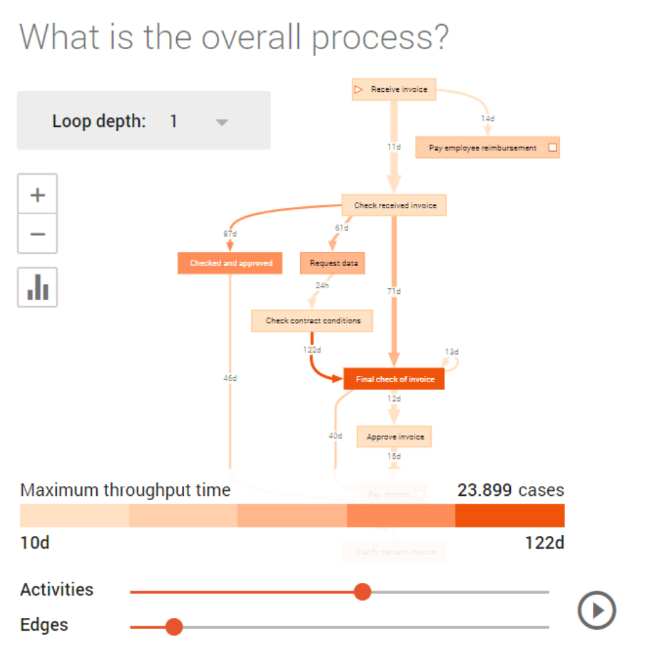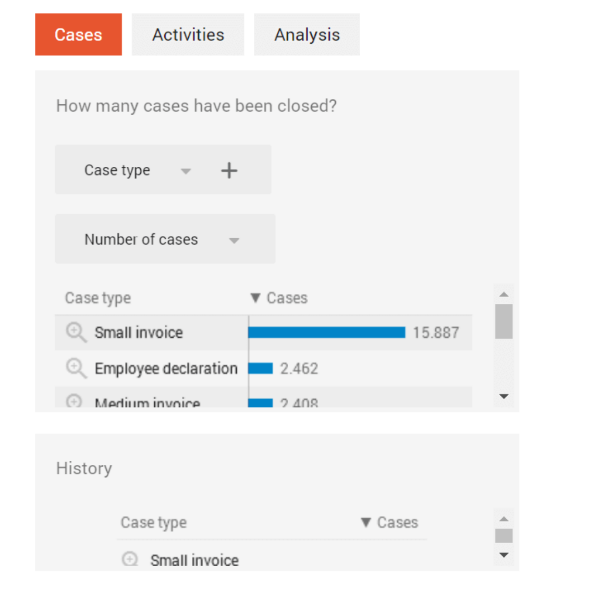- Posted by: aquiliti
- Category: Automation, Innovation

How you can use automation technology to map out your processes and clearly see which processes can be automated and where it will make the biggest impact.
There are plenty of surveys1 out there telling you that AI and Robotic Process Automation (RPA) are hot topics which are getting the attention of the C-suite, with many executives either claiming that they already have RPA in place or are about to start. In order to accelerate automation, there are now tools to help you identify which processes to automate.
The growth in sales revenues of the 3 largest RPA providers (Blue Prism, UiPath and Automation Anywhere) suggests that this is no longer an emerging business opportunity but an active core business initiative for many companies around the world. The staggering investments these companies are attracting also signal a belief in the growth by major investors (https://www.uipath.com/company/investors).
Avoiding mistakes
One of the lessons we can learn from some of the early adopters of RPA is that it is not just about the technology but also where to apply automation, as not all business processes are as easy to adapt as others.
The findings of industry case studies and published research on RPA implementation are consistent with Aquiliti’s own practical experience in this area which suggests that the key to success lies in:
- Having a robust framework for reviewing the multiple business processes that your staff use each day; and
- Working collaboratively with your staff to identify the time being spent on the various tasks and the difficulties they face in being able to get their job done.
It’s worth noting that in KPMG’s 2018 Global CEO Outlook, 62% of CEOs thought that AI and Robotic technologies would create more jobs than they would eliminate.
How many business processes have you got?
According to the AQPC2 Process Classification Framework®, most businesses have over 300 core business processes with many more sub-processes. These processes range from onboarding new staff, managing sales leads & opportunities through to approving an invoice.
It is likely that these processes were defined early in the company’s evolution and unless your organisation has embraced Six Sigma or process re-engineering, it is likely that some (if not all) of the process tasks and activities taking place today can be improved in some way.
Finding the right opportunities
Automation technology now extends to the mining and mapping of processes based on the data produced by your own systems. This allows you to more rapidly unlock the potential for automation of your processes and to understand the value it can deliver.
These new technologies (e.g UiPath’s Explorer3, RPAReady and others) monitor, in real-time, how long each of the various tasks and activities take to be performed. They then map out not only each part of the workflow but also the time taken and the data being accessed by each stakeholder as they perform each activity.
UiPath’s Explorer software comes pre-packaged with powerful, time elapsed visual output (shown below) that enables scientific analysis of each activity, the tasks that take the longest to complete and where they can be improved.
 |
 |
These new tools accelerate the mapping of the business process allowing you to clearly see which processes can be automated and where automation will deliver the greatest return on investment.
In the example above, the “Process Invoice” step was the longest activity taking to complete and after automation was reduced from an average time of just under 7 days to just 5 hours. This frees up time for the team to focus on the work that contributes to the greatest value.
If you would like to find out more about accelerating your business improvement processes please call us on 02 9262 1995 or send us an email to info@aquiliti.com.au.
- The Economist “Advance of Automation” Survey available at automationfirst.economist.com
KPMG 2018 Global CEO Outlook – 62% of CEO’s thought AI and Robotics would create more jobs
Capgemini – Unlocking Automation’s Untapped Value - APQC is a not for profit organisation. PCF is intended to facilitate organisation improvement through process management
- Aquiliti is a UiPath Partner
